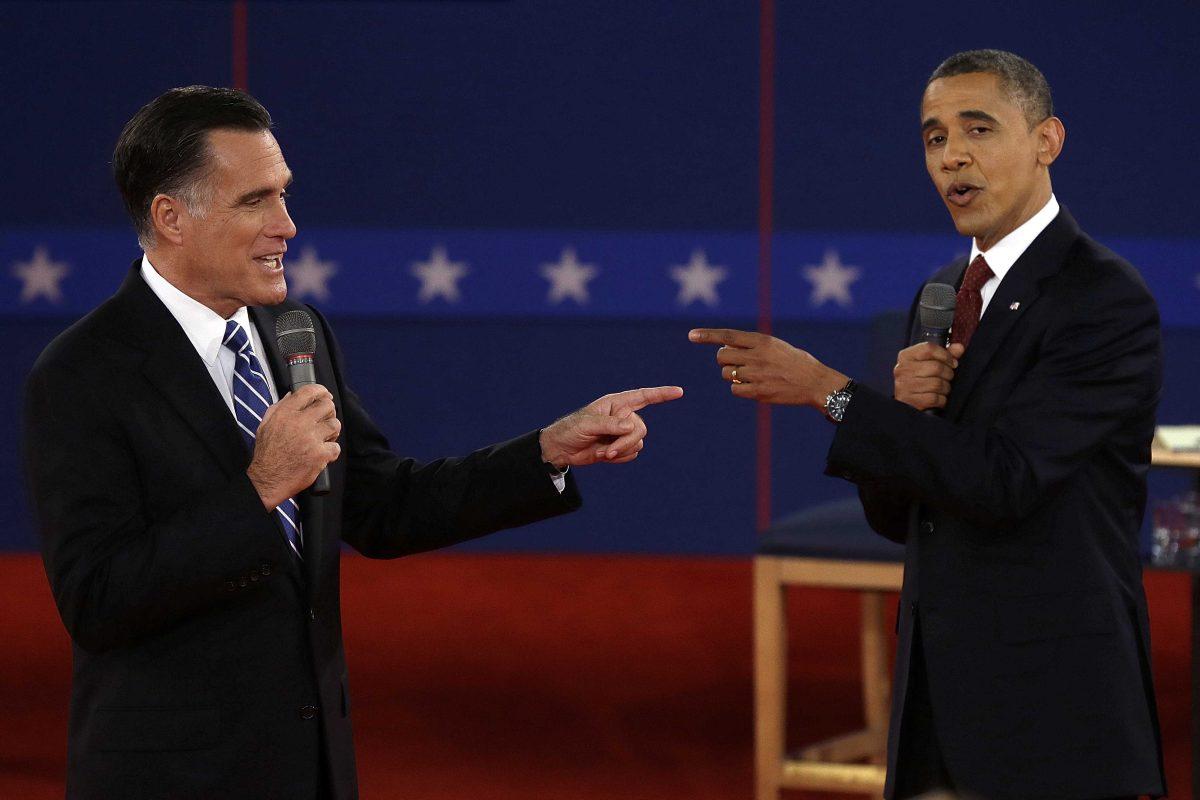On this week’s edition of the hit reality show, “Who Will Run the World’s Most Powerful Country,” the nation finally got what it was asking for: aggressive participants, face-to-face standoffs and a president with a pulse.
The biggest demand that was not met was for a decent moderator willing to handle the heavyweights President Obama and Republican nominee Mitt Romney with an equally heavy hand.
Listening to these demands is precisely what has driven the debate dialogue this election season — at least for the candidates — and heeding them is also why debate dialogue is as polarized as it has ever been.
Town hall debates are known to generally hold an even keel, not leaning too far toward one candidate or the other, and this particular town hall was no different. Although both candidates performed admirably regarding their bases, President Obama was able to shine above Romney — if only by means of not sleeping through this session like he did in the previous.
“Governor Romney doesn’t have a five-point plan; Governor Romney has a one-point plan: Make sure that folks at the top play by a different set of rules,” Obama said early in the debate.
Direct attacks like these literally took center stage last night as the candidates stood, walked the floor and accused each other of various oversights face-to-face.
But still, as demonstrated by the polarity seen in the vice presidential debate, each camp only seems to be appealing to his core: those voters already in the bag.
One of the most beneficial voting blocks up for grabs tonight was female voters. According to a poll released Monday by Gallup and USA Today, the enormous advantage Obama once held over female voters has eroded since the first debate, and, shockingly, many have flocked to the Republican camp.
In swing states, Romney has tied his opponent for likely female voters.
Unfortunately for Romney, though, his handling of women’s issues last night were framed with a conservative lining that does not bode well for his new supporters.
When asked about equal pay and fair hiring for women, for instance, Romney’s response seemed to treat women as working against the cultural current, and his aim to make employers actually want women workers insinuated a bias that shouldn’t exist in the first place.
This is a hard question to address directly because this bias does exist for many employers, but the governor’s clumsy response could never stand up to the Democratic Party’s support of the availability of contraceptives — though Romney was wise to distance himself from anti-contraceptive policy.
“In my economy, employers are going to be so eager for new employees that they’ll hire women,” Romney said.
Romney set himself back considerably with women voters when he brought family values into the topic of gun violence and control.
According to Romney, the best deterrence to gun violence is a strong family. Just like his answer to female employment, he does have a point here. But after former Pennsylvania Sen. Rick Santorum toured the country deploring today’s anti-family values, people are wise to the notion of family rights and enforcement.
This is because it typically means pro-life and anti-contraceptive policies and traditional, conservative family values which tend to single out women as homemakers.
Romney stood above the President on the economy last night, however, and his portrayal of the stats — though often misleading — will play into his hand.
The deficit has grown rather than halved, Romney said, and unemployment stands where it was upon Obama’s inauguration.
The duality between the Democrats’ edge on social issues and the Republican’s focus on the economy have defined election season thus far and will continue to do so until election day.
Now that Obama has altered his approach and brought a hotter head into the ring, those unsure of granting him a second vote will shake their reluctance more easily, especially after last night’s debate.





